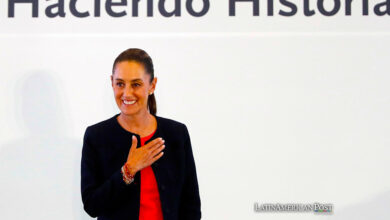Dominican Republic Trials Innovative Four-Day Workweek Model

In an unprecedented move for the Caribbean, the Dominican Republic is gearing up to launch a voluntary six-month pilot program introducing a four-day workweek for private and public companies. Set to commence in February, this initiative represents a significant shift in the traditional work paradigm, aiming to foster a better work-life balance while maintaining the same salary levels for employees.
A Pioneering Shift: Redefining the Workweek
Under this pioneering program, the standard workweek will be reduced from the current 44 hours to 36 hours, with employees working from Monday to Thursday. This adjustment presents a radical departure from the conventional work schedule that typically spans the week with additional hours on Saturdays. The government’s decision to endorse this model underscores a progressive approach to workplace dynamics, acknowledging the changing needs and preferences of the modern workforce.
Among the companies expected to participate are key industry players such as Claro, a leading telecommunications giant in Latin America; EGE Haina, a prominent power company; IMCA, which specializes in heavy equipment; and the National Health Insurance Agency of the government. The involvement of these diverse organizations demonstrates the broad appeal and potential impact of the four-day workweek across various sectors.
A local university has been entrusted with the task of analyzing the outcomes of this pilot program. This analysis will delve into several critical aspects, including the health implications for workers and the interplay between their professional commitments and personal lives. The study aims to provide a comprehensive understanding of the benefits and challenges of this new work model, offering valuable insights for potential future implementations.
Current Labor Structure and Flexibility
Currently, the labor structure in the Dominican Republic allows companies considerable flexibility in scheduling work hours. The typical arrangement includes eight-hour workdays during the week and an additional four hours on Saturdays, at most 44 hours per week. This flexibility, however, has yet to fundamentally challenge the traditional five-day workweek model that dominates the global work culture.
The four-day workweek pilot program in the Dominican Republic arrives when the concept is gaining traction worldwide. Increasingly, countries and companies are experimenting with shorter workweeks, driven by studies suggesting that such models can lead to higher productivity, improved employee well-being, and a better balance between professional and personal responsibilities.
The Dominican Republic’s initiative is particularly noteworthy as it is the first in the Caribbean region. It reflects a growing recognition of the need for innovative work arrangements that align with the evolving expectations of the workforce. The move could set a precedent for other regional nations, sparking a broader reevaluation of work norms and practices.
This pilot program also represents a critical
experiment in redefining the relationship between work hours and productivity. Reducing the workweek while maintaining salaries challenges the conventional wisdom that longer hours necessarily equate to greater output. This approach aligns with emerging research suggesting that reduced work hours can lead to more focused and productive employees, who are better rested and more satisfied with their work-life balance.
Additionally, the program’s focus on analyzing health changes and their impact on personal lives is pivotal. It recognizes that employee well-being extends beyond the workplace. A more balanced life can improve health and increase job satisfaction and overall happiness. This holistic view of the employee experience is a progressive step in human resource management, reflecting a deeper understanding of the factors contributing to a motivated and efficient workforce.
Diverse Industry Participation: A Testament to Innovation
The involvement of a diverse range of companies in this pilot is a testament to the growing interest in innovative work models across different sectors. It also provides an opportunity to study the impact of the four-day workweek across various industries, offering insights that could inform future policy and business decisions.
Also read: Argentina Inflation Surges Past 210%, Challenging Milei’s Government
The Dominican Republic’s four-day workweek pilot program is a bold experiment in the future of work. It represents a significant step in reimagining the workweek in a way that could enhance productivity, employee well-being, and work-life balance. As the world continues to evolve rapidly, initiatives like this offer a glimpse into how workplaces can adapt to meet the changing needs of their employees while still achieving their business goals. The results of this pilot will be keenly observed by many, potentially inspiring similar initiatives in other countries and regions.





